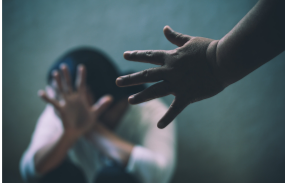
Earlier this year, the Delhi High Court began hearing petitions challenging the constitutionality of the marital rape exception to section 375 of the Indian Penal Code. The conscious leaving out of marital rape from criminalisation via the country’s rape law has effectively ensured that rape within marriage is legal or more precisely – rape within marriage does not exist. This blog post attempts to capture the arguments in favor of removing this exception to marital rape.
In recent years, judgements of the Kerala High Court and the Gujarat High Court seem to suggest a shifting momentum within Indian courtrooms on the issue of marital rape exception. The latest in this is a recent Karnataka High Court judgement refusing to free the husband from a charge of rape filed by his wife. In its judgement the court said,
‘If a man, a husband, a man he is, can be exempted of an allegation of commission of ingredients of Section 375 of the IPC, inequality percolates into such provision of law. Therefore, it would run counter to what is enshrined in Article 14 of the Constitution.’
This points to the primary contention against the exception to marital rape – that it constitutes a violation of the constitutional provision of equality. The petitioners in the Delhi High Court have also argued that the legal protection accorded to marital rape infringes upon the woman’s fundamental rights as guaranteed under Articles 14, 15, 19 and 21 of the Constitution, which includes equality before law, the right to life, liberty, physical integrity and sexual autonomy. Particularly, the marital rape exception compromises on the promise of equality of all before law by making an ‘unreasonable’ distinction between married and unmarried woman in cases of rape.
The 2013 Justice Verma Committee that was set up with the aim of reforming criminal law pertaining to sexual assault and rape recommended repealing the exception to marital rape. The committee reasoned that consent cannot be determined by the nature of relationship between the complainant and accused. This essentially negates the idea of ‘implied consent’ – the notion that the relationship between the individuals in itself indicates consent as already perpetually present. The 2015 Pam Rajput Committee constituted by the Central Government to report on the status of women in India made a similar recommendation, criticising the Parliament for not incorporating the suggestions of the Verma committee to do away with the marital rape exception. Further, the reluctance to recognise marital rape also puts India in contravention of international conventions such as the United Nation’s Convention on the Elimination of All Forms of Discrimination against Women which unambiguously states in Article 1 that the definition of ‘discrimination against women’ is not dependent on the marital status of the woman.
Outside of constitutional reasoning, scholars also situate the issue of decriminalisation of marital rape within the wider context of coerced marriages, where inter-faith and inter-caste relationships often face the brunt of societal and state violence in India. A person’s right to marry, particularly a woman’s right, is strictly regulated by the boundaries of caste. Even when such marriages bound by caste are often forced and non-consenting, there is an assumption of the woman’s permanent consent that can never be withdrawn. At the same time, relationships outside of caste, class and religious boundaries face the wrath of State violence even when the individuals involved are in a mutually consenting relationship. Here, the legal apparatus through mechanisms such as the exception to marital rape is involved in the task of protecting the socially approved institution of marriage, while exposing other non-normative consenting relationships to legal violence.
Recent developments within the Indian courtrooms suggests that the debate might be shifting gradually in favor of criminalising marital rape. The recent hearings in the Delhi High Court have generated a coordinated social media campaign by some Indian men claiming to be men’s rights activists who have pledged to remain unmarried if the exception to marital rape is removed. They argue that such criminalisation would lead to misuse of the law by women and a consequent collapse of the institution of marriage. As the Central Government has taken a similar approach in its defense of the marital rape exception, the idea that marriage is a ‘sacrosanct’ institution seems to be the biggest hurdle to criminalising marital rape in India.

